Cameron's EU demands: UK 'mini treaty' among options
- Published
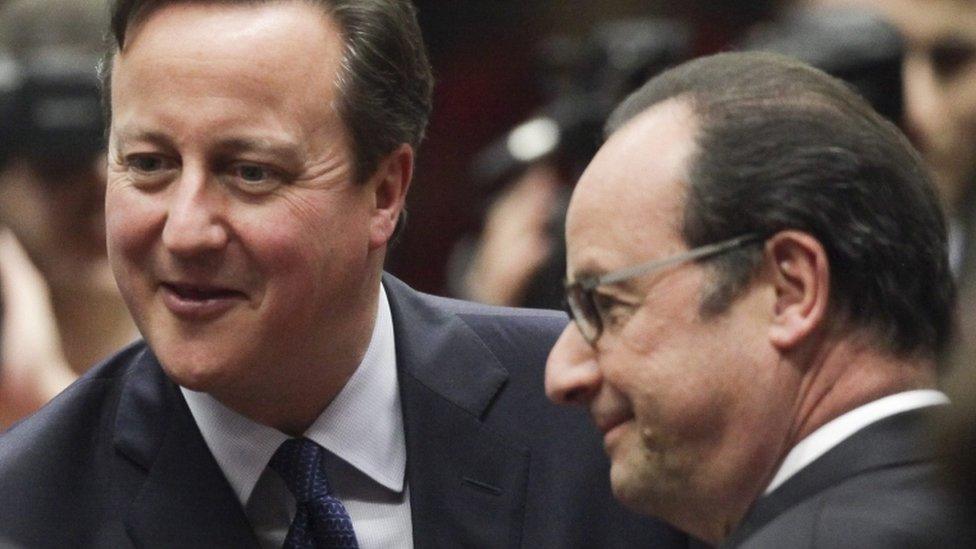
French President Francois Hollande (right) has said there could be adjustments over Mr Cameron's demands but EU rules must be respected
Depending on one's perspective, the glass of Bordeaux - or Chianti - that is Britain's attempt to renegotiate its relationship with the EU is half empty - or half full.
Yes, European leaders are irritated with having to deal with UK demands. They're more than preoccupied with terror and security plus the arrival of over a million refugees and others by land and sea into Europe this year.
But it's exactly these pressures, plus the still-sluggish performance of eurozone economies, that will make those leaders work hard now to keep Britain in the pack.
EU unity and credibility are crumbling. Brexit (Britain leaving the EU) would make matters a lot worse.
Search for solutions
Brussels is THE horse-trading capital of Europe. There's certainly room for deals to be done.
The loudest opponents of David Cameron's plan to cut migrant workers' benefits come from Central and Eastern Europe - but they also champion Britain for its tough stance on sanctions against Russia. They don't want the UK to leave.
Denmark, the Netherlands and Poland appreciate Britain's insistence on less interference from Brussels. They loathe the idea of a full-on federalist EU.
And then there's powerful Germany and France - desperate for the UK to stay so they're not left covering a hefty shortfall in the EU budget.
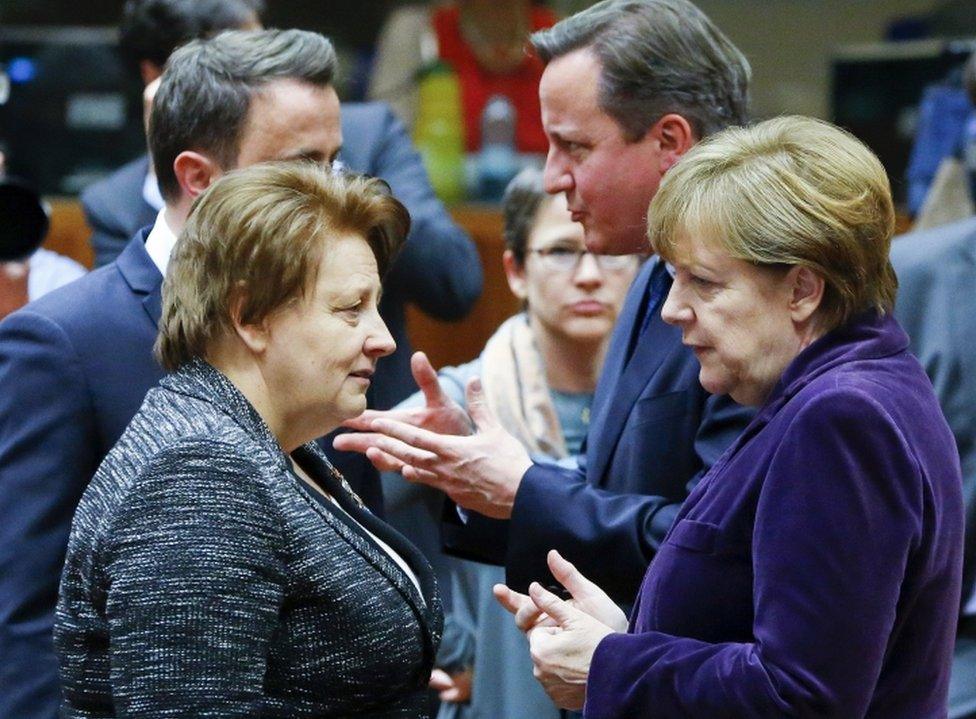
German Chancellor Angela Merkel (right) says the leaders "all want a compromise"
So the search is on for solutions (few dare say the word compromise).
One is a tailor-made UK "mini treaty" listing agreed EU opt-outs.
Unlike full-on treaty change, that could be achievable in the prime minister's timeframe. The legally binding UK agreement would then be incorporated into wider EU treaties the next time they were changed.
It won't be easy, but then that suits Mr Cameron and others in the EU.
He needs to convince critics that these are tough, far-reaching European reforms.
Meanwhile Brussels wants this process to be painful enough to deter others from demanding their own special deals.

UK's EU referendum in-depth
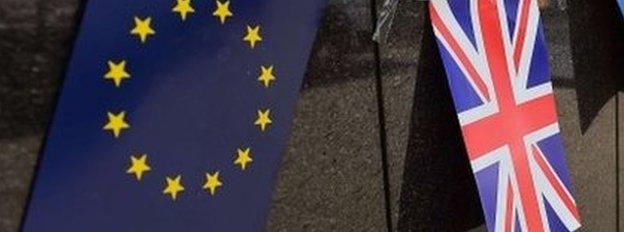
- Published18 December 2015
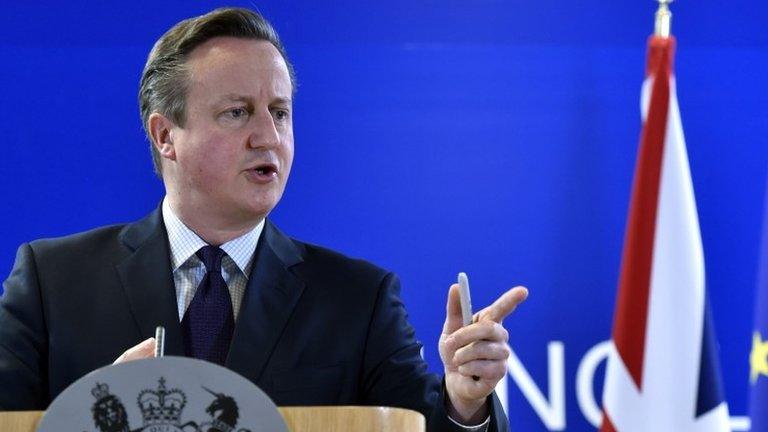
- Published17 February 2016
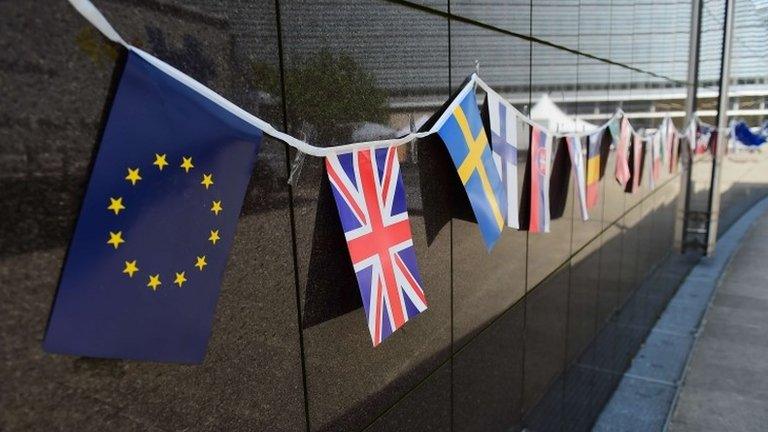
- Published30 December 2020

